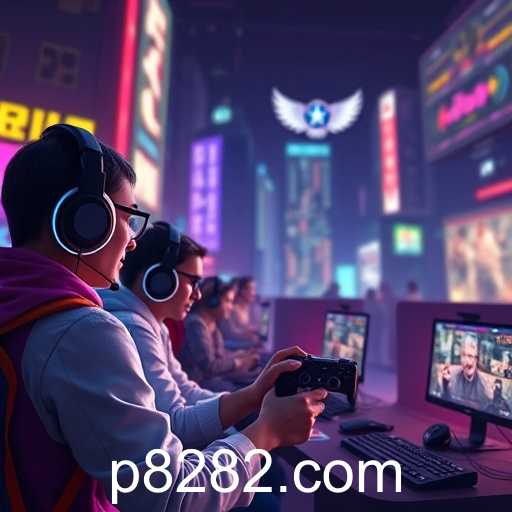In the vibrant and rapidly-evolving digital landscape of 2025, the realm of online gaming stands at a fascinating crossroads of technology, culture, and interactive entertainment. One such influential platform, known by the moniker P828, is a noteworthy player in this ongoing narrative.
As the gaming industry reaches new heights, P828 continues to maintain its position as a quintessential representation of how digital experiences impact global cultural trends. By offering a rich tapestry of interactive adventures and competitive gameplay, it draws millions of players who are not only seeking entertainment but are also participating in a digital community that stretches across borders and individual identities.
This platform exemplifies the growing significance of gaming as a cultural cornerstone, reflecting broader societal shifts towards online connectivity and virtual interaction. As more individuals engage in these virtual realms, the boundaries between traditional and digital cultures blur, creating a dynamic where online interactions influence real-world behaviors and values.
The past year has seen a surge in the use of innovative technologies within games, from augmented reality experiences to AI-driven narratives, which P828 has adeptly incorporated. These technologies not only enhance gameplay but also reshape the way players perceive storytelling, challenge conventions, and engage with content. As a result, players are no longer passive consumers; they are active participants in a shared narrative space that reflects elements of their own lives and cultural identities.
Commentators frequently highlight the role of gaming platforms in fostering global dialogues about inclusion, diversity, and creative expression. P828, in particular, has been at the forefront of promoting inclusive game design, ensuring that players from varied backgrounds see themselves reflected in the games they play. This approach not only broadens the narrative scope but also enriches the player experience by promoting empathy and understanding across different cultures.
Amidst these developments, one must also consider the implications of such expansive digital networks on privacy and data security. As players increasingly integrate their personal identities with online profiles, companies like P828 face the challenge of safeguarding user information while providing immersive experiences.
In conclusion, the ongoing evolution of platforms like P828 illustrates the intricate tapestry of gaming as a cultural phenomenon. As we move deeper into 2025, the influence of gaming on societal norms, cultural narratives, and technological advancements is set to persist, making it an essential area of interest for cultural analysts and technology enthusiasts alike.








